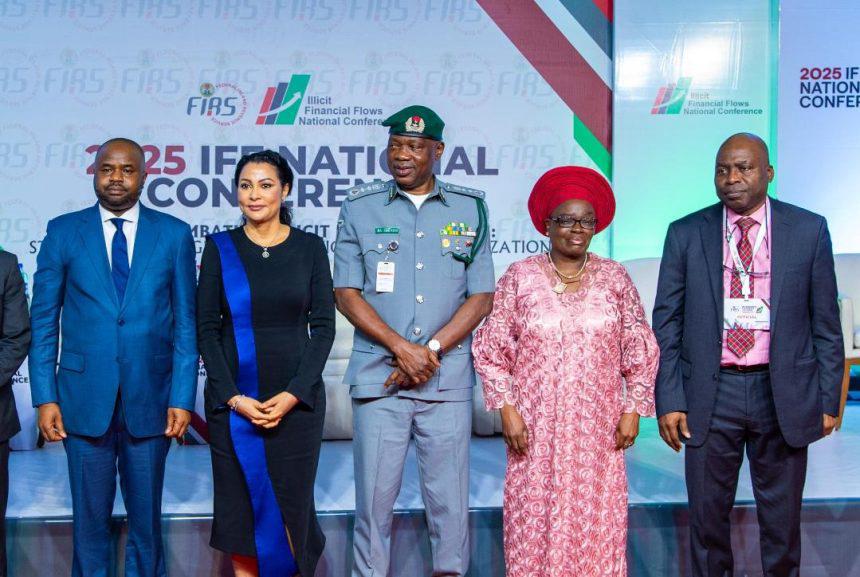Customs Boss Underscores Critical Role of NCS in Tackling Illicit Financial Flows at National Conference

The Comptroller-General of the Nigeria Customs Service (NCS), Bashir Adewale Adeniyi, has reiterated the Service’s pivotal role in combating illicit financial flows (IFFs), as stakeholders gathered in Abuja for the opening session of the National Conference on Combating Illicit Financial Flows.
Addressing delegates on Tuesday, CGC Adeniyi described the fight against IFFs as central to Customs operations, citing the agency’s continued vigilance at the nation’s borders.
He explained that NCS plays a strategic enforcement role by monitoring cross-border movements of cash and negotiable instruments, especially those exceeding threshold limits that require mandatory declarations.
“In the last six months, Customs has tightened loose ends at all our borders to ensure that declaration protocols are diligently implemented,” he said, noting that the Service had taken proactive steps to prevent the movement of illicit funds through Nigeria’s entry and exit points.
Adeniyi further highlighted the evolving complexity of illicit financial flows, noting that the upcoming Financial Action Task Force (FATF) assessment demands an integrated, multi-agency response.
He called for deeper collaboration among government institutions such as the Nigeria Customs Service, Federal Inland Revenue Service (FIRS), the Economic and Financial Crimes Commission (EFCC), and other regulatory and financial intelligence agencies.
“The FATF assessment requires a whole-of-society approach. We cannot succeed if we work in silos,” Adeniyi stated. “It is imperative that we align our intelligence, enforcement, and regulatory frameworks to effectively tackle this issue.”
Also speaking at the conference, the Minister of State for Finance, Dr Doris Anite, acknowledged that Nigeria’s historic over-reliance on oil revenues had become increasingly unsustainable.
She emphasised the importance of current reforms aimed at broadening the country’s revenue streams by strengthening the non-oil sector, particularly the tax system.
“By strengthening tax systems, the participating members should create a more inclusive and accountable fiscal framework capable of funding national development, reducing debt dependency, and ensuring all sectors contribute fairly to growth,” Anite said.
The conference brought together a broad spectrum of stakeholders from government, financial institutions, international organisations, and civil society to deliberate on actionable strategies to curtail the illicit flow of funds, which continues to undermine Nigeria’s fiscal stability and economic progress.
The event forms part of ongoing national efforts to improve transparency, enhance revenue collection, and ensure Nigeria meets global standards in financial governance and anti-money laundering protocols.







